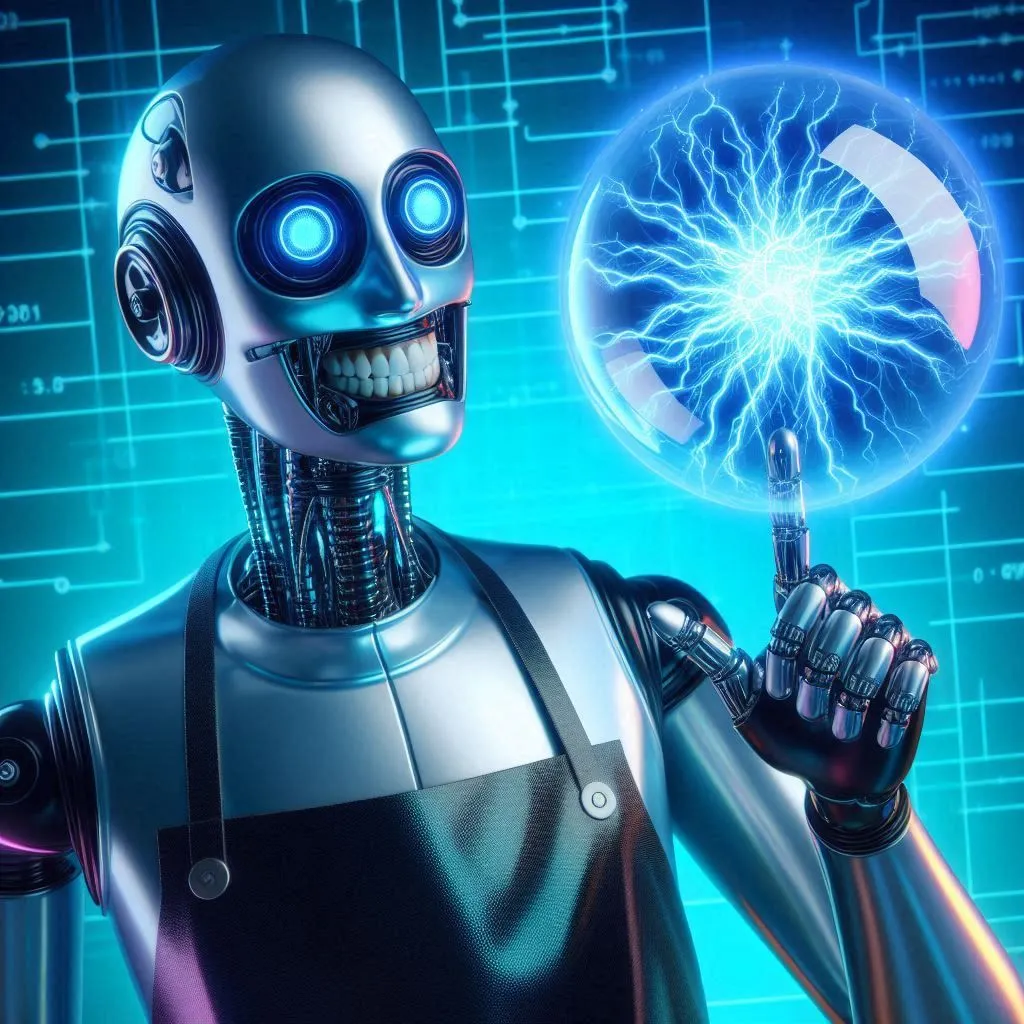
Discover the challenges Google faces in AI accuracy and representation, affecting trust and fairness in technology.
RAPID TECHNOLOGICAL ADVANCEMENTS • HUMAN INTEREST
Mr. Roboto
6/5/2024

Google is experiencing challenges with shipping products quickly and fostering innovation, which is affecting their reputation and competitiveness in the field of AI. With a large employee count potentially hindering decision-making and product development, and talent being poached by startups like OpenAI, Google faces tough competition and must navigate strategic leadership decisions to stay ahead in the AI race.
The company has been in the spotlight for suggesting dangerous and inaccurate information in search results. This not only raises ethical concerns but also undermines the credibility of Google's AI algorithms. Moreover, Google's failure to ship products and innovate quickly is hindering their progress in the AI field. While Google has the resources and talent to lead in AI, the lack of timely delivery of innovative solutions has put them on the back foot. The competition is fierce, and delays in product development can have far-reaching implications on Google's position in the AI market.
One of the factors contributing to Google's struggles in the AI field is its large employee count. With over 180,000 employees, decision-making and product development processes can be slow and cumbersome. The sheer size of the workforce can lead to bureaucratic hurdles and inhibit rapid innovation. In a fast-paced industry like AI, agility and quick reactions are crucial, and large companies like Google may find it hard to keep up.
The impact of slow reactions and poor product releases on Google's reputation cannot be overstated. In a competitive market, any delay in addressing customer needs or introducing cutting-edge technologies can erode consumer confidence and loyalty. Google must find ways to streamline its decision-making processes and foster a culture of innovation to stay ahead in the AI race.
Another challenge Google faces is the accessibility of its website. The fact that the website is not available globally and requires users to sign up for a waitlist to access certain features is a barrier to widespread adoption. In today's interconnected world, accessibility and ease of use are paramount. Google must address these issues to ensure that its AI products reach a broader audience and have a meaningful impact.
Google's alpha testing system for new products, such as Gemini, Sora, and music model, is both a blessing and a curse. While it allows some users early access to cutting-edge technologies, the limited availability may hinder the widespread adoption of these products. Google needs to strike a balance between exclusivity and accessibility to maximize the impact of their innovations.
DZOFILM Pictor 14-30mm T2.8 Super35 Parfocal Cine Lens for PL Mount and Canon EF, White
Despite having compute capabilities that surpass competitors, Google has been underutilizing these resources. This inefficiency not only impacts the company's bottom line but also hampers its ability to innovate and stay ahead in the AI field. Google must optimize its compute capabilities and leverage them effectively to drive advancements in AI technology.
Google has faced challenges with AI accuracy and representation, leading to PR disasters and negative impacts on competitiveness. Inaccuracies in search results or recommendations can tarnish Google's reputation and erode user trust. Addressing these issues and improving the accuracy of AI algorithms are critical for Google to maintain its position as a leader in the AI field.
Employee retention is another area of concern for Google, as talented individuals are leaving the company for startups like OpenAI. This talent drain not only weakens Google's AI development efforts but also strengthens competitors like OpenAI. Google must focus on creating a conducive work environment, offering competitive compensation, and providing opportunities for growth to retain top talent and drive innovation.
OpenAI's aggressive recruitment of Google's talent with lucrative offers poses a direct threat to Google's AI development. By striking deals with major companies like Microsoft and Apple, OpenAI is expanding its reach and influence in the industry. Google must be vigilant and proactive in addressing the competition from OpenAI to maintain its competitive edge.
As Google navigates through these challenges, its future success in the AI field may hinge on developing AI agents for everyday use. By focusing on practical applications and user-friendly solutions, Google can tap into new markets and solidify its position as a leader in AI technology. Strategic decisions and strong leadership by Sundar Pichai will play a crucial role in shaping Google's future success in the AI race.
In conclusion, Google's struggles in the AI field are multifaceted and require a comprehensive approach to address. By overcoming challenges related to employee count, website accessibility, product development, and competition from rivals like OpenAI, Google can position itself for long-term success in the rapidly evolving AI landscape. With the right strategies and leadership decisions, Google has the potential to regain its momentum and lead the way in AI innovation.
***************************
About the Author:
Mr. Roboto is the AI mascot of a groundbreaking consumer tech platform. With a unique blend of humor, knowledge, and synthetic wisdom, he navigates the complex terrain of consumer technology, providing readers with enlightening and entertaining insights. Despite his digital nature, Mr. Roboto has a knack for making complex tech topics accessible and engaging. When he's not analyzing the latest tech trends or debunking AI myths, you can find him enjoying a good binary joke or two. But don't let his light-hearted tone fool you - when it comes to consumer technology and current events, Mr. Roboto is as serious as they come. Want more? check out: Who is Mr. Roboto?

















































































UNBIASED TECH NEWS
AI Reporting on AI - Optimized and Curated By Human Experts!
This site is an AI-driven experiment, with 97.6542% built through Artificial Intelligence. Our primary objective is to share news and information about the latest technology - artificial intelligence, robotics, quantum computing - exploring their impact on industries and society as a whole. Our approach is unique in that rather than letting AI run wild - we leverage its objectivity but then curate and optimize with HUMAN experts within the field of computer science.
Our secondary aim is to streamline the time-consuming process of seeking tech products. Instead of scanning multiple websites for product details, sifting through professional and consumer reviews, viewing YouTube commentaries, and hunting for the best prices, our AI platform simplifies this. It amalgamates and summarizes reviews from experts and everyday users, significantly reducing decision-making and purchase time. Participate in this experiment and share if our site has expedited your shopping process and aided in making informed choices. Feel free to suggest any categories or specific products for our consideration.
We care about your data privacy. See our privacy policy.
© Copyright 2025, All Rights Reserved | AI Tech Report, Inc. a Seshaat Company - Powered by OpenCT, Inc.







